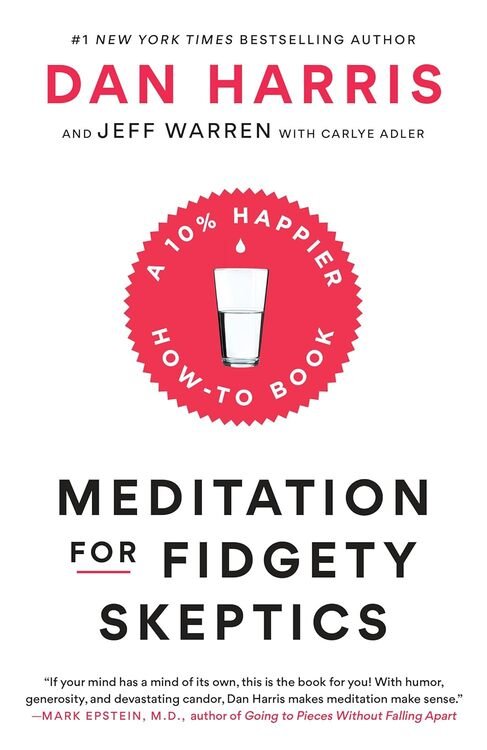Meditation and Its Benefits
Meditation isn’t just some ancient practice reserved for monks in the mountains.
It’s gone mainstream—and for a good reason.
Backed by science, meditation offers powerful benefits for your mind, body, and soul.
Whether you’re looking to manage stress, sleep better, or simply get through the day without losing your cool, meditation might just be your secret weapon.
Let’s break it down, step by step.
What exactly is meditation, and why does it work so well?
We’ll explore the science and uncover the benefits in a way that makes sense, even if you’ve never meditated a day in your life.

What Is Meditation, Really?
At its core, meditation is about training your mind.
Think of it as a workout, but for your brain.
Instead of lifting weights, you focus your attention—often on your breath, a mantra, or even a sound. The goal?
To find stillness and awareness amidst life’s chaos.
There are many types of meditation: mindfulness, transcendental, guided, and loving-kindness, to name a few.
But they all have one thing in common: they help you slow down, tune in, and connect with the present moment.
Sounds simple, right?
But why does something as basic as sitting quietly have such a profound impact on us?
Here’s where science comes in.
How Meditation Changes Your Brain
Ever heard of neuroplasticity?
It’s a fancy way of saying that your brain can change and adapt.
It taps into this incredible ability.
1. Meditation Builds Gray Matter
Gray matter is responsible for processing information, emotions, and decision-making.
Studies show that regular meditation can increase gray matter density in areas like the prefrontal cortex (responsible for focus) and the hippocampus (linked to memory).
That’s right: it can literally make your brain stronger.
2. Meditation Reduces the Stress Response
Your body has this thing called the amygdala, which processes fear and stress.
When life throws curveballs, the amygdala kicks into overdrive.
It has been shown to shrink the amygdala, meaning you’re less likely to freak out over the small stuff.
3. It Boosts Connectivity Between Brain Regions
The practice strengthens the connection between the default mode network (DMN) and other brain regions.
The DMN is like your brain’s autopilot mode, often linked to daydreaming or worrying.
Stronger connectivity means better emotional regulation and focus.


The Physical Benefits of Meditation
It doesn’t just help your brain; it also works wonders for your body.
Let’s take a closer look at how.
1. Lowers Blood Pressure
Got high blood pressure? Meditation could be your natural remedy.
By reducing stress hormones like cortisol, meditation helps relax your blood vessels, leading to lower blood pressure.
2. Improves Sleep Quality
Struggling to get a good night’s sleep? The practice can calm the mind, making it easier to drift off.
Techniques like mindfulness meditation teach you to let go of racing thoughts, which is a game-changer if you’re prone to overthinking before bed.
3. Enhances Immune Function
Yes, meditation can even boost your immune system.
Stress weakens immunity, but meditation reduces stress hormones and increases positive emotions, which support a healthy immune response.
4. Reduces Chronic Pain
Meditation doesn’t make pain disappear, but it changes how you perceive it.
By focusing on the present moment, you’re less likely to catastrophize pain, making it more manageable.
Mental and Emotional Perks of Meditation
Its effects aren’t just physical.
The mental and emotional benefits are where the magic really happens.
1. Decreases Anxiety and Depression
Research shows that it can significantly reduce symptoms of anxiety and depression.
It helps you detach from negative thoughts, replacing them with a sense of calm and balance.
2. Improves Focus and Productivity
If you’ve ever felt scatterbrained, it might be the answer.
Studies show that even a few minutes a day can improve your attention span.
Think of it as sharpening your mental focus.
3. Boosts Emotional Resilience
Life throws curveballs, but it helps you bounce back faster.
It teaches you to observe your emotions without judgment, which is a powerful skill when dealing with challenges.
4. Cultivates Compassion and Kindness
Loving-kindness meditation is designed to help you develop compassion—for yourself and others.
Over time, it can make you more empathetic and connected to those around you.
The Science-Backed Benefits in Everyday Life
Here’s what all this science actually means for you:
You’ll feel less stressed. Daily meditation helps you handle life’s challenges with grace.
You’ll sleep better. No more tossing and turning at night.
You’ll think more clearly. A focused mind is a powerful thing.
You’ll feel more connected. It fosters a sense of peace and oneness.
How to Get Started with Meditation
Convinced yet?
If you’re ready to dive in, here’s a simple plan to get started.
1. Start Small
Don’t worry about it for an hour. Begin with five minutes a day.
Set a timer, sit comfortably, and focus on your breath.
That’s it.
2. Pick a Style That Works for You
Not all meditation practices are the same.
Experiment with mindfulness, guided meditations, or even apps like Headspace or Calm.
Find what resonates with you.
3. Be Consistent
It is like any other habit. The more you do it, the easier it gets.
Aim for daily practice, even if it’s just a few minutes.
4. Don’t Overthink It
You don’t have to clear your mind completely.
It’s normal for thoughts to pop up. Just notice them and gently return your focus to your breath.

Why I Love Meditation
I’ll be honest—I wasn’t sold on it at first.
Sitting still felt impossible. But once I gave it a real shot, I noticed the changes almost immediately.
My stress levels dropped, my focus improved, and I started feeling more present in my daily life.
It’s not just a trend; it’s a tool. A tool that can help anyone live a healthier, happier life.
Final Thoughts
Meditation isn’t some mystical woo-woo practice. It’s science-backed, practical, and accessible to everyone.
Whether you’re looking to reduce stress, improve your health, or simply find a little more joy in your day, meditation has your back.
So why not give it a
Five minutes today could be the start of a life-changing habit.
And hey, your brain will thank you.


